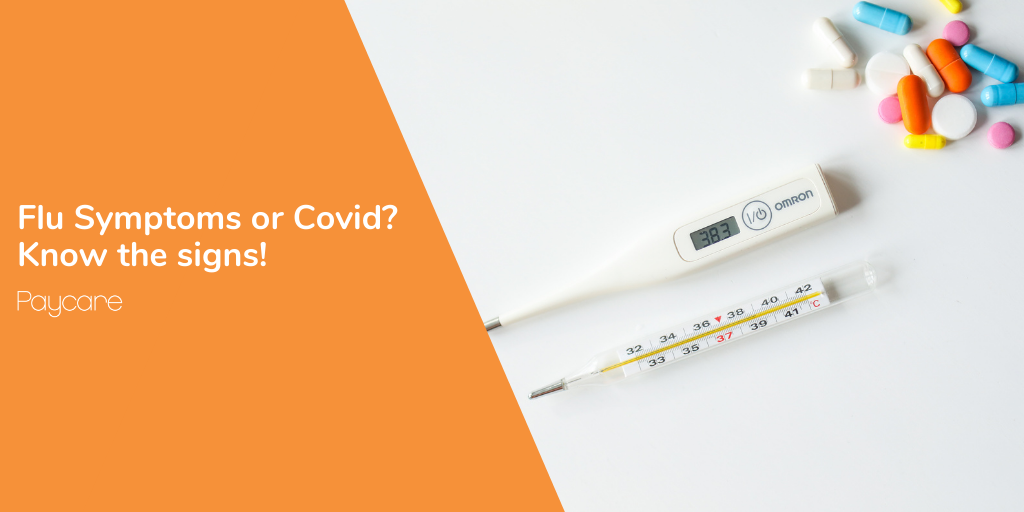It can be tricky at the best of times to know if you’ve got flu symptoms or simply a bad cold – and this year the ongoing Covid-19 pandemic is bound to add to the confusion and worry…
With different treatments recommended for each – and of course the need to socially distance if you’ve got Coronavirus – it’s important to know exactly what you’re dealing with 🙌
While colder weather doesn’t cause flu (as the influenza virus has to be present for you to catch it), it’s well known that the winter brings with it a rise in cases.
Health experts reckon this happens for three main reasons: people spend more time indoors with their windows closed so they’re more likely to breathe in the virus if someone they’re with has it, our levels of Vitamin D and melatonin drop during the winter which in turns weakens our immune system, and viral particles are able to survive better in cold weather1.
The nation’s beloved NHS has had a year of pressure like no other, with waiting times for a routine appointment often more than two weeks – and almost half of GPs reporting patients had come to harm due to extra delays during the pandemic2. That’s where apps like Paycare’s MyPocketGP have come into their own. Provided by the award-winning Medical Solutions, the service enables Policyholders to book an online or telephone appointment with a GP – and could prove vital this winter for individuals who want to know if they’ve got flu symptoms or may have Coronavirus (GPs will be able of course advise those with suspected Covid to get tested).
A much shorter wait for an appointment, no practical considerations such as childcare or transport to think about, and avoiding attending the surgery where you could pass on your symptoms to other patients – these are three of the key advantages to the service, which is now being offered as part of our Bundle wellbeing package (also including MyHelpline telephone advice and Paycare Perks).
You can find out what your Policy includes by logging into your MyPaycare area. And to help you even more, here’s our handy guide to cold and flu symptoms, and Coronavirus signs.
Key flu symptoms:
A sudden high temperature, aches and pains, feeling exhausted, dry cough and sore throat, headache, feeling or being sick, children may have ear pain and be less active.
Treatment: Taking paracetamol or ibuprofen, keep hydrated, rest, and keep warm.
Key cold symptoms:
Symptoms come on gradually, blocked or runny nose, cough, sneezing, pressure in ears or face, loss of taste and smell, headache, muscle aches.
Treatment: Gargle salt water, keep hydrated, rest and keep warm.
Key Coronavirus symptoms:
High temperature, new continuous cough, loss or change of sense of smell or taste.
Treatment: If you think you have Coronavirus, you must self-isolate (along with everyone else in your household), and go online or call the NHS on 111 to arrange for a test.
***
This winter is bound to be a worrying time for lots of us – but making sure we know what’s wrong if we start to feel unwell is a key way that we can reduce the worry. Do seek advice as soon as you can, and stay safe by following guidance around social distancing, wearing face coverings, and frequent handwashing 😊🧡
Let’s take care of your health and wellbeing 🙌 #PayCAREforyourself
Sources: 1 | 2 | All symptom information from www.nhs.uk

